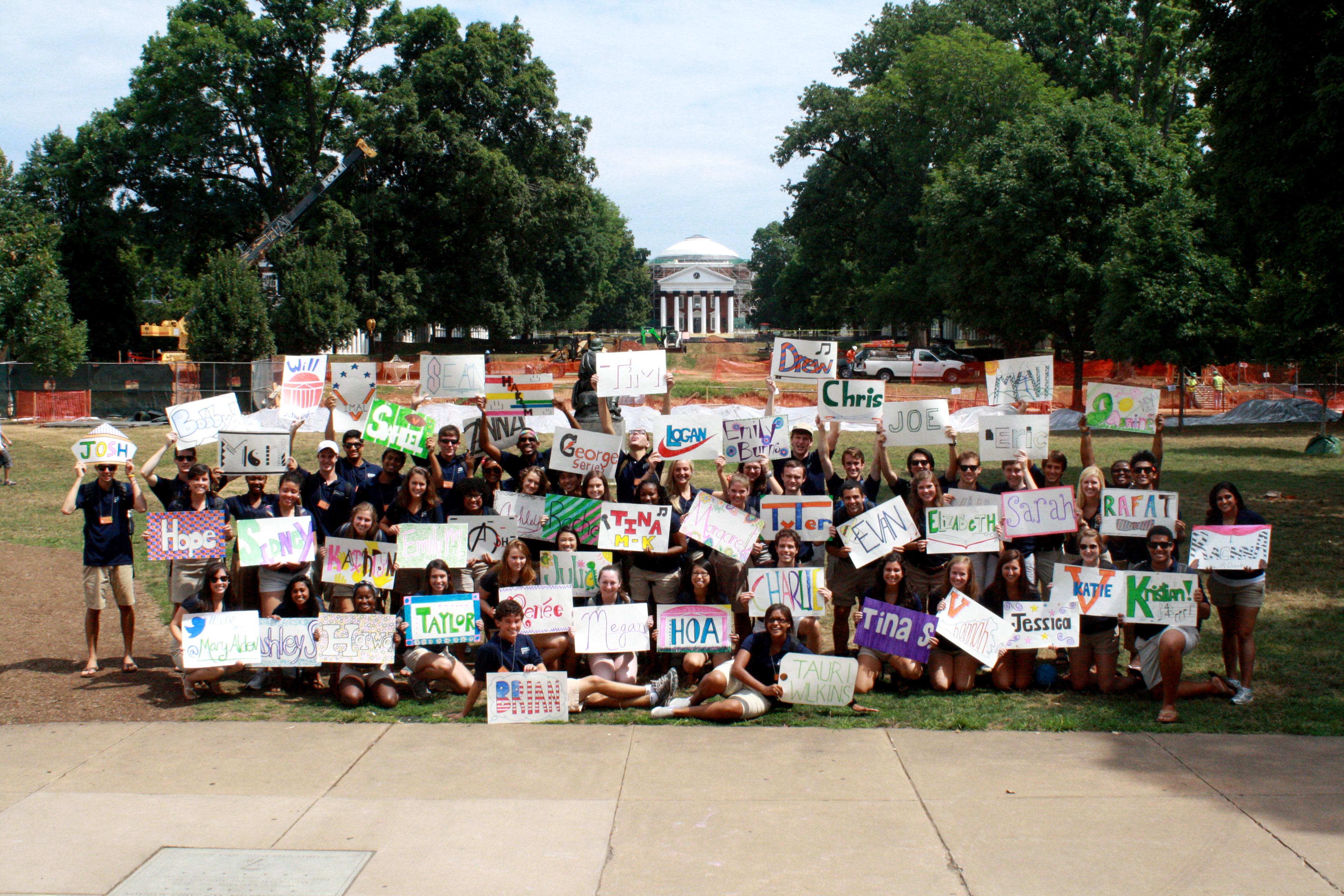The start of another academic year brings new people, new classes and, for some, a new university. Transitioning to college can be intimidating for transfer students, who must integrate with a new community in the middle of their academic careers.
To welcome and help them acclimate to life at the University of Virginia, Orientation and New Student Programs offers the Transfer Student Peer Advisor Program, in conjunction with a separate orientation session for transfer students only.
Unlike the two-day experience for first-year orientation, the transfers' session is a one-day event, since those attending have already had a chance to adjust to college life as a whole, explained Shraddha Prasad, assistant director of orientation. As a result, presenters place more emphasis on learning about the U.Va. environment, its departments and the class registration process.
For incoming transfers to the College of Arts & Sciences, the orientation day offers addresses by Tabitha Enoch, director of orientation; Patricia M. Lampkin, vice president and chief student affairs officer; representatives of the Honor Committee; and Frank Papovich, the College dean in charge of transfers. Afterward, transfers register for courses and meet with department representatives to declare a major, if necessary.
They can also drop in on a student life panel discussion, a resource fair, meet with Student Financial Services representatives, attend a McIntire School of Commerce information session or an off-Grounds housing fair, and go on classroom tours.
Despite the condensed transfer session, "We still work just as hard and enthusiastically with this shorter session as we would with our first-year students," Prasad said, "because we do want to imbue the same level of encouragement and excitement for this experience to all students coming into the University."
The 35 Transfer Student Peer Advisors – to whom all incoming transfer students are assigned – embody much of this enthusiasm and encouragement.
Rising fourth-year politics major Josh Bland began his college career at Virginia Tech, but is grateful for his move to U.Va. and the peer advisers who welcomed him.
"As a transfer student, my TSPA served as my first contact with the University and continued to foster that relationship throughout the year," he said. "It's really helpful to have a friend to turn to who has been in your shoes and can help with the assimilation process."
A ratio of two or three advisers per 12 students is the norm for the program, and Bland said that five or six of his advisees this past year have remained very involved, and two have gone on to become advisers themselves. To foster these strong connections, they contact advisees by email prior to orientation, introduce themselves and assist with the orientation day, and join in events such as lectures and garden dinners in the days before classes commence.
In addition, the program encourages continued interaction among and between transfers and their advisers throughout the year, with scheduled activities including group events and informal sports competitions.
"While orientation helps transfer students with the academic side of university life, the TSPA program gives them an outlet to foster growth not only academically, but socially," Bland said. "By introducing students to other transfers, they're able to build relationships that many transfer students miss out on by not having a first-year dormitory experience."
The McIntire School and U.Va.'s many sports programs lured rising fourth-year student Robert Tungate, who is concentrating on accounting and management and serves one of the three student chairs of the TSPA program, to Charlottesville from the College of William & Mary.
"I had a really good adviser coming in who helped me get access to research opportunities and get a better understanding of the day-to-day things at U.Va.," he recalled.
He said he likes to think of the TSPAs as "training wheels," in that the mentor-pupil relationship can quickly change as incoming transfers look more for a friend than an adviser – and find TSPAs who are more than willing to be both.
– by Preston Pezzaro
Media Contact
Article Information
August 13, 2012
/content/veteran-transfer-students-help-incoming-uva-transfers-feel-home

